Why study this course with LJMU?
- LJMU ranked 10th in the UK for graphic design (The Guardian University Guide 2025)
- Visit the Graphic Design and Illustration Degree Show
- Students can access study abroad opportunities and prizes for overseas travel
- Diverse range of graphic arts covered including graphic design, illustration, printmaking, photography, animation, motion graphics and interactive design
- You will have opportunities to work with and be taught by renowned graphic designers, illustrators and professionals from the creative industries
- Opportunities to participate in 'live' projects, work collaboratively or in teams, and attend freelance and networking events
- Students benefit from free off-site access to industry-standard Adobe Creative Cloud Suite including, Illustrator, Photoshop and Indesign
- Enjoy spacious, well-equipped, dedicated studio space in RIBA award-winning John Lennon Art and Design Building
About your course
The BA (Hons) Graphic Design at Liverpool John Moores University has a well established reputation for developing innovative designers and illustrators, highly sought after by employers in this exciting but competitive sector.
Graphic Design and Illustration has been a central component in the Liverpool School of Art and Design for over 40 years. Our established and distinctive approach offers you the chance to explore a broad range of skills and knowledge whist supporting you to develop into independent and creative thinkers with the capacity to make an impact in and beyond the creative industries.
We are a friendly, inclusive, and supportive community of illustrators, designers, researchers, and troublemakers with studio culture at the heart of our approach. Across all years our modules are inclusive and accessible. We encourage traditional approaches to flourish side-by-side with emerging technologies, nurturing play and experimentation, and embedding research into practice in the belief that design & creativity can be used to make positive changes in the world around us.
Coursework is primarily organised around practical studio projects with supporting contextual studies and professional development modules. Projects at all levels encourage a high degree of creativity and self-expression. An increasing professional emphasis as the course progresses is focused towards the development of a portfolio most suited to future career aspirations.
Graphic Design and Illustration is a studio-based activity and as such the course places great emphasis on the importance of a studio culture in which students engage with their studies on-site and develop a meaningful, on-going dialogue with tutors about their work and progress. The programme has maintained a strong reputation over the years producing graduates who have become creative forces both nationally and internationally.
The first year of the programme develops fundamental skills in visual communication and graphic arts. In the second year you can choose to specialise in developing skills in either Graphic Design or Illustration. In the third year you work closely one-to-one with your tutor to define a suite of projects that can support you in achieving your goals after graduation. Our close links with the local and national creative industries results in collaborations, 'live' projects and internship opportunities, all of which are essential preparation for your future career.
The programme is committed to a civic agenda and aims to ensure that all students are empowered to authentically explore their interests and identities. Our teaching is informed by four overarching and intersecting themes:
- Identity & Society
- Climate Crisis
- Emerging Technology
- Responsible Practice
As designers and illustrators, we tell stories. Our aim is to enable you to develop and communicate your own areas of interest and approach, harnessing your creativity and self-expression to develop a portfolio of work and a vision of what you might want to achieve in the future, supporting you to take your next steps into employment, self-employment or to continue in education.
Our course has a strong reputation, and you are following in the footsteps of graduates who have become creative forces both nationally and internationally.
They include:
- Paul Pensom, who is current Art Editor at Creative Review
- Jimmy Turrell, Graphic artist and Video Director represented by Heart Agency and an international client base including Nike, MTV, Conde Nast, Pentagram and Dazed & Confused
- Joe Stottard, Lead Designer at Adidas in Germany
- James Gilmore, designer at Design Studio, responsible for the recent rebranding of The Premier League and Airbnb
- Malik Thomas-Smeda who was commissioned by the National Football Museum in Manchester
- Al Murphy, freelance illustrator with an international client base including MTV, Guardian and TimeOut NY
- Richard Turley, Global Creative Director at Wieden + Kennedy, New York
Additional opportunities available outside of the studio include study trips at each Level and the prestigious Julia Midgely Reportage Travel Awards, Susan Cotton Travel Awards and Sue Dunthorne Travel Bursaries, that give students opportunities to undertake overseas trips for personal and professional development.
Course modules
What you will study on this degree
Further guidance on modules
Modules are designated core or optional in accordance with professional body requirements, as applicable, and LJMU’s Academic Framework Regulations. Whilst you are required to study core modules, optional modules provide you with an element of choice. Their availability may vary and will be subject to meeting minimum student numbers.
Where changes to modules are necessary these will be communicated as appropriate.
Core modules
Understanding Visual Communication
20 credits
20 credits
This module introduces you to the key principles, ideas, people, places and approaches that have shaped visual communication and studio practice enabling you to develop a broad understanding of the history of the Graphic Arts and the approaches that have influenced it.
Expectations
40 credits
40 credits
This module introduces you to the programme through a series of complementary briefs that encourage curiosity and experimentation with a variety of approaches to build confidence in taking risks and develop a practical understanding of some of the key skills and concepts that underpin visual communication and the graphic arts. The module culminates in a Portfolio of work demonstrating an exploratory approach to, and understanding of, the key skills and concepts.
Exploring Practice
40 credits
40 credits
In this module you will reflect on your own background, interests and values. You will develop an independent approach to your practice to explore how visual communication can be used to interrogate, discuss, challenge and communicate complex issues related to culture and society enabling you to recognise the purpose, power and possibility of the work you produce. Through this module pathway preferences and strengths are identified to inform module choices and key areas for exploration at Level 5.
Politics and Purpose
20 credits
20 credits
This module draws on historical and contemporary practice to consider the relationship between visual communication, culture and society exploring issues such as the climate crisis, decolonisation, emerging technology and identity to enable you to better understand the implications and intent of Graphic Design & Illustration practice in the context of a changing world.
Core modules
Visual Communication Cultures
20 credits
20 credits
Through a focus on contemporary practitioners and researchers this module introduces you to new and emergent thinking, approaches and business practices in the Graphic Arts. Emphasising the role of the responsible practitioner, the module will challenge and expand your understanding of Graphic Design and Illustration, enabling you to identify and utilise contextual frameworks to develop your own viewpoints and a critical understanding of your practice.
Research Investigations
20 credits
20 credits
This module introduces you to a range of research methodologies and writing styles to widen approaches to critical investigation into, through, and for practice and develop your creative voice. You will identify and investigate a field of interest that reflects you and your future aspirations within graphic design, illustration or the visual arts, and use this to develop a project proposal and research plan to guide your L6 studies.
Optional modules
This is Graphic Design
40 credits
40 credits
This module is focussed on developing and expanding your graphic design practice through experimentation, creative play and iteration. You will examine the relationship between media, method and audience developing skills across a diverse range of areas such as typography, layout, print, moving image, design for screen and emergent technology to inform the production of a portfolio of work. Experimentation across a diverse range of digital and analogue processes and formats within graphic design practice will inform the production of a portfolio of work.
This is Illustration
40 credits
40 credits
This module is focussed on developing and expanding your illustration practice through experimentation, creative play and iteration. You will examine the relationship between media, method, text, and audience and investigate making and interpreting meaning within images. Experimentation across a diverse range of digital and analogue processes and formats within illustration practice will inform the production of a portfolio of work.
Graphic Design Practice
40 credits
40 credits
In this module you will work across a range of briefs informed by external contexts and socio-cultural themes to develop and assess self-directed, independent and collaborative working methods, and to cultivate a professional approach to your practice. The module culminates in the production of a portfolio that positions your work within contemporary graphic design practice and the broader creative industries.
Illustration Practice
40 credits
40 credits
In this module you will work across a range of briefs informed by external contexts and socio-cultural themes to develop and assess self-directed, independent and collaborative working methods, and to cultivate a professional approach to your practice. The module culminates in the production of a portfolio that positions your work within contemporary illustration practice and the broader creative industries.
Study Year Abroad – Graphic Design & Illustration
120 credits
120 credits
This is an additional year of full-time study at an approved higher education institution. The modules to be studied must be agreed in advance, and must be appropriate for the student's programme of study. Assuming successful completion of this year, mark-bearing credit will be awarded by the University Recognition Group. The grade conversion scale to be used will be made available in advance of the year abroad.
Core modules
Graphic Arts Research Project
40 credits
40 credits
This module offers you the opportunity to articulate your own creative voice. Through sustained self-directed research, analysis and evaluation you will critically explore a subject, related to graphic design, illustration or visual arts, to produce a written outcome and a practice-based project, that reflects your interests, aspirations, ethical principles, lived experiences and personal values.
Ambition & Authorship
40 credits
40 credits
This module supports the transition towards more ambitious, independent and self-directed learning giving you the opportunity to undertake projects relevant to your personal practice and future aspirations. You will develop projects from a range of platforms with socio-cultural themes and engage with practice-based research methods and directed creative experimentation to develop imaginative and original outcomes.
Professional Practice
40 credits
40 credits
This module is the culmination of the programme and offers you the opportunity to propose and undertake an individual programme of study that will position your work in a professional context. A series of workshops, industry focussed skills sessions, and portfolio development exercises will prepare you for the transition to postgraduate study, entrepreneurship or employment.
Your Learning Experience
Excellent facilities and learning resources
We adopt an active blended learning approach, meaning you will experience a combination of face-to-face and online learning during your time at LJMU. This enables you to experience a rich and diverse learning experience and engage fully with your studies.
Teaching is focused on practical studio projects which usually last for several weeks and involve briefings, workshops, discussions, reviews and critiques. There will also be design history and theory lectures, and an annual visiting lecture series of high-profile guest speakers. Previous series have featured keynote lectures by Lance Wyman, Kate Moross, Jonathan Barnbrook, Adrian Shaughnessy, Bjorn Rune Lie, Jon McNaught, and Morag Myerscough.
You will have plenty of one-to-one contact with your tutors, either in group briefings, lectures, seminar groups or in tutorials, but as the course progresses, you are expected to spend more time working independently. This becomes particularly important when you start to work on career-focused projects and placements. In general, you are expected to commit to approximately 35 - 50 hours of study per week and students are timetabled for 12 -18 hours per week in groups of 10 - 20 students per tutor.
Materials and Equipment:
- We cover the cost of materials needed during induction workshops
- Dedicated budgets at each level allow students to claim back some of their expenses each year
- Free access to Risograph printing facilities
- Students at L4 have access to dedicated Apple laptops. But students are expected to buy items that are closely linked with their personal approach to making work.
Each year group has its own dedicated studio space. Final year students have access to a dedicated desk space within the final year studio. You will also have open access to digital photography, printmaking, digital fabrication and moving image workshop areas. There are two dedicated Risograph print work shop areas within the graphics studios. John Lennon Art and Design Building is open from 7am - 9pm weekdays. The Student Life Building is open 24/7.
Dedicated personal tutor, plus study skills support
From the moment you begin your studies at LJMU, you will be encouraged to seek out your tutors to discuss your work and progress.
You will have three or four meetings each year to talk about your personal development planning with your personal tutor, where you will be given formal feedback on your work and guidance on your future direction.
At each Level you are given a personal tutor who oversees your academic development. At Level 4 your personal tutor will be your main point of contact for your induction, teaching sessions and any academic or personal matters. As you progress through the course the allocated personal tutor often changes to reflect your career aspirations. They will play a significant role in your professional development.
The course is social, where study within the graphics studio and the John Lennon Art and Design Building facilities is not only encouraged but expected and engagement with all modes of teaching is expected. You will be taught by most of the course team during your three years at LJMU and all tutors will take an active interest in your progress, whether they are teaching you specific modules or not.
To quote one of our tutors, joining the Graphic Design and Illustration course means you "become part of a larger Liverpool Graphics family."
Assessment varies depending on the modules you choose, but will usually include a combination of exams and coursework.
Constructive feedback is vital in helping you to identify your strengths as well as the areas where you may need to put in more work. It is provided verbally during reviews and critiques of practical projects interim reviews.
At the end of each module, you will receive written feedback with an indication of your marks within three weeks of submitting work, although this may take longer if the marks go through an external moderation and approval process.
Where you will study
What you can expect from your School
LJMU ranked 10th in the UK for graphic design (The Guardian University Guide 2025).
Cross-disciplinary learning in art and design subjects takes place in the Liverpool School of Art and Design's John Lennon Art and Design Building, based in the Mount Pleasant Campus. Here students studying a variety of disciplines, including Architecture, Art in Science, Exhibition Studies, Fashion, Fine Art, Graphic Design, History of Art and Museum Studies and Interior Architecture, will have the opportunity to develop their work in state-of-the-art workspaces and facilities within a stimulating and critically demanding environment.
Course tutors

Graphic Design and Illustration is a diverse graphic arts degree course covering graphic design, illustration, motion graphics, interactive design, printmaking, photography, bookmaking and animation. The course has a tradition of delivering an interdisciplinary yet specialist curriculum. This approach is distinctive to Liverpool.
Graphic Design and Illustration is a diverse graphic arts degree course covering graphic design, illustration, motion graphics, interactive design, printmaking, photography, bookmaking and animation. The course has a tradition of delivering an interdisciplinary yet specialist curriculum. This approach is distinctive to Liverpool.
-
 Lecturer/Senior Lecturer
Lecturer/Senior Lecturer -
 Lecturer/Senior Lecturer
Lecturer/Senior Lecturer -
 Programme Leader
Programme Leader -
 Senior Lecturer
Senior Lecturer -
 Lecturer/Senior Lecturer
Lecturer/Senior Lecturer


After specialising in design and illustration for children throughout my final year, I have been lucky enough to become a designer for Usborne Publishing. Not only do I get to design and illustrate for the children's market, I am learning the production side of the publishing industry. I feel really proud to have gained a design position with Usborne so soon after graduating. It's a really rewarding job.
Career paths
This highly vocational programme presents many opportunities to make contacts in the world of graphic design and illustration
Through live projects, competition briefs and graduate freelance and self-employment events, all of these activities are pathways into careers in the creative industries, whether you decide to go freelance, find employment with a large agency or start up your own design studio.
The programme works with a panel of industry experts and external examiners to ensure that our graduates meet the standards required by the creative industries.
You are prepared for the 'world of work' within the curriculum in a number of ways. Most significantly the course is highly vocational, with clearly defined career options. The course also continues to develop a number of initiatives with highly respected design studios to embed workshops and real world projects led and delivered by industry professionals within our Level 5 and 6 professional development modules.
Student Futures - Careers, Employability and Enterprise Service
A wide range of opportunities and support is available to you, within and beyond your course, to ensure our students experience a transformation in their career trajectory. Every undergraduate curriculum includes Future Focus during Level 4, an e-learning resource and workshop designed to help you to develop your talents, passion and purpose.
Every student has access to Careers Zone 24/7, LJMU's suite of online Apps, resources and jobs board via the LJMU Student Futures website.
Tuition fees and funding
- Home full-time per year:
- £9,535
Fees
The fees quoted above cover registration, tuition, supervision, assessment and examinations as well as library membership and student IT support with access to printed, multimedia and digital resources including programme-appropriate software and on campus Wi-Fi.
Financial Support
The University offers a range of scholarships to support students through their studies. You'll find all the information you need on our specialist funding pages, including details of the Student Support Fund and other activities to support with the cost of living.
Additional Costs
In addition to fees, students should also keep in mind the cost of:
- Accommodation
- Travel costs including those for placements, visas and travel for studying abroad and field trips unless paid for by LJMU
- Stationery, IT equipment, professional body membership and graduation gown hire
The University reserves the right to increase tuition fees in accordance with any changes to the maximum allowable fees set by the UK Parliament. In the event of such a change, any fee increase will be subject to a maximum cap of 10% of the total course cost as originally stated at the time of your offer.
Entry requirements
Please choose your qualifications below to view requirements
Grades/points required from qualifications: 112-128
Work out how many UCAS points your qualifications are worth by visiting the UCAS Tariff Calculator.
Qualification requirements
GCSEs and equivalents
Prior to starting the programme applicants must have obtained GCSE Grade 4 or C or above in English Language and Mathematics/Numeracy or an approved alternative qualification below:
- Key Skills Level 2 in English/Maths
- NVQ Level 2 Functional skills in Maths and English Writing and or Reading
- Skills for Life Level 2 in Numeracy/English
- Higher Diploma in Maths/English
- Northern Ireland Essential Skills Level 2 in Communication or Application of Number
- Welsh GCSE in Maths
- Wales Essential Skills Level 2 in Communication or Application of Number
A levels
- Minimum number of A Levels required: 2
- Subject specific requirements: To include an Art/Design subject if no other level 3 Art/Design qualifications taken
- Is general studies acceptable? Yes
- Average A Level offer: BBC-ABB
- Are AS level awards acceptable? Acceptable only when combined with other qualifications
- Maximum AS Level points accepted: 20
BTECs
Extended Diploma: DMM-DDM in an Art or Design subject
Access awards
- Access to Higher Education Diploma acceptability: Acceptable on its own and combined with other qualifications
- Further information: At least 15 Distinctions and 30 Merits, or any other combination that equates to 112 UCAS Tariff points in an Art/Design subject
International Baccalaureate
- International Baccalaureate: Acceptable on its own and combined with other qualifications
- Additional information: 112-128 UCAS Tariff points from IB Composite parts, or in combination with other Level 3 qualifications which must include an Art/Design subject
OCR Cambridge Technical
Extended Diploma: DMM-DDM in an Art or Design subject
Irish awards
- Irish Leaving Certificate: Acceptable on its own and combined with other qualifications
- Grades / subjects required: 112-128 UCAS Tariff points, to include Art/Design subject at higher level
Welsh awards
- Welsh Baccalaureate: Acceptable only when combined with other qualifications
T levels
- T Level requirements: 112-128 UCAS Tariff points in an Art or Design subject. Acceptable on its own or combined with other qualifications.
Alternative qualifications considered
UCAS Tariff points accepted from the Diploma in Foundation Studies (Art & Design, and Art, Design and Media).
Applications are welcomed from mature and non-standard applicants, who will be considered on an individual basis. These applicants should demonstrate potential and motivation and/or have relevant experience.
International applications will be considered in line with UK qualifications.
Additional requirements
-
Interview required
Shortlisted applicants will be required to provide a portfolio and attend interview. Applicants will be emailed by LJMU advising to book an interview via the Applicant Hub and upload a portfolio prior to interview using our upload attachment facility.
Portfolio guidance can be viewed here
Further information
- DBS, Occupational Health requirements
-
Advanced entry
Advanced level entry is considered for level 5 (Year 2) only
-
Reduced offer scheme
As part of LJMU’s commitment to widening access we offer eligible students entry to their chosen course at a reduced threshold of up to 16/8 UCAS points. This applies if you are a student who has been in local authority care or if you have participated in one of LJMU’s sustained outreach initiatives, e.g. Summer University. Please contact the admission office for further details.
How to apply
Securing your place at LJMU
UCAS is the official application route for our full-time undergraduate courses. Further information on the UCAS application process can be found here https://www.ljmu.ac.uk/study/undergraduate-students/how-to-apply.
What are we looking for?
- An enthusiasm for Art & Design based subjects
- Capable of discussing of Art & Design issues and influences
- Visual awareness and communication
- The ability to analyse and reflectively criticise
While we take many students who are already certain about their eventual pathway through the programme it is not necessary at this stage for students to have made up their mind. We are more interested in ideas, attitude and students' approach to making work and less interested in technical prowess. Sketchbooks, reference and research work are as important as finished project work at interview.
Assessment of suitability to the course will include a review of a portfolio of work (Portfolio guidance) and interview."
Your university life
From accommodation and academic support to clubs and societies. Find out what LJMU has to offer.
Related Links
Talk to our students
Connect with a current LJMU student for advice and guidance on university life, courses and more.
See what our students are saying
At LJMU we want you to know you're making the right choice by studying with us. You can see what our students are saying about their experience with us via the following websites:
Related Links
News and views
Browse through the latest news and stories from the university

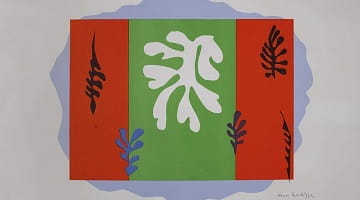

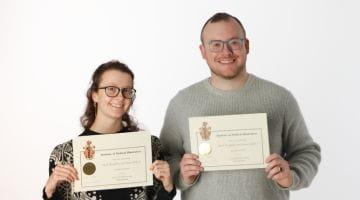
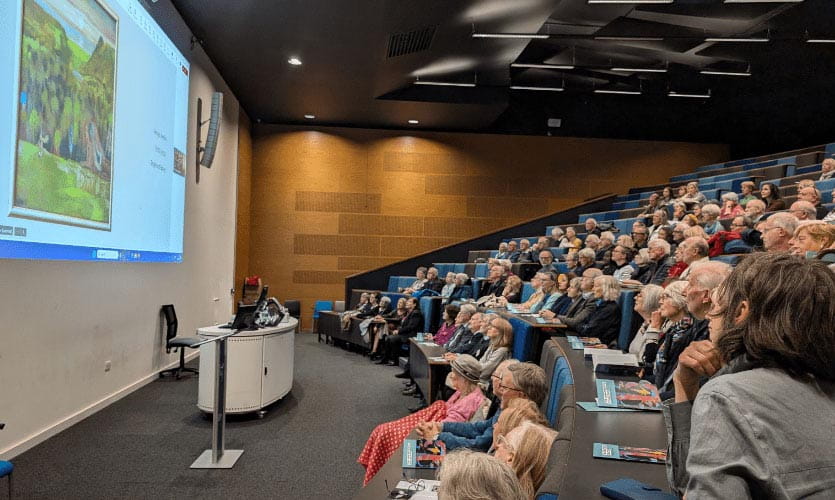
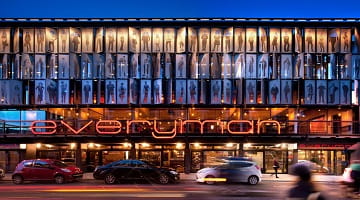

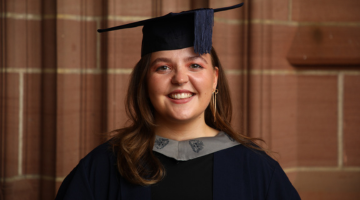
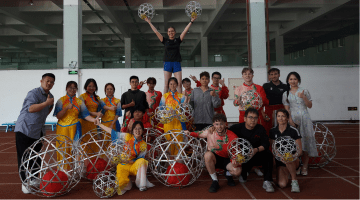
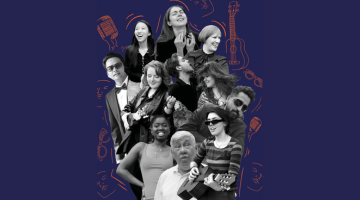
The university reserves the right to withdraw or make alterations to a course and facilities if necessary; this may be because such changes are deemed to be beneficial to students, are minor in nature and unlikely to impact negatively upon students or become necessary due to circumstances beyond the control of the university. Where this does happen, the university operates a policy of consultation, advice and support to all enrolled students affected by the proposed change to their course or module.
Further information on the terms and conditions of any offer made, our admissions policy and the complaints and appeals process.




















